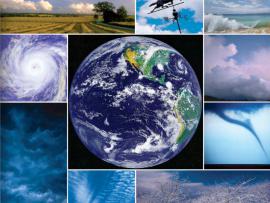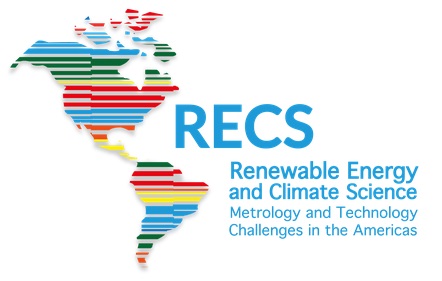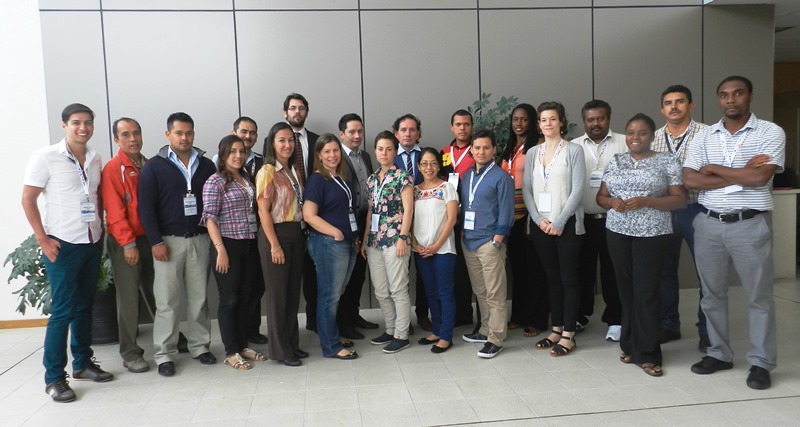
 Climate change is a reality impacting the economy of every country and the well-being of its people. In addition to global warming, evidence of its consequences includes glaciers contraction, extreme weather events and sea level rise, among others. Latin America and the Caribbean are at even greater risk given their vulnerability and their urban and low coastal development trends. The Paris Agreement on Climate Change and the recently adopted 2030 Agenda for Sustainable Development include a number of commitments to monitor and review the progress made with regard to climate change actions. A key aspect in this process is the development of greenhouse inventories to measure progress in reducing emissions.
Climate change is a reality impacting the economy of every country and the well-being of its people. In addition to global warming, evidence of its consequences includes glaciers contraction, extreme weather events and sea level rise, among others. Latin America and the Caribbean are at even greater risk given their vulnerability and their urban and low coastal development trends. The Paris Agreement on Climate Change and the recently adopted 2030 Agenda for Sustainable Development include a number of commitments to monitor and review the progress made with regard to climate change actions. A key aspect in this process is the development of greenhouse inventories to measure progress in reducing emissions.
This relationship between climate change and progress measurement is precisely the focus of the Renewable Energy and Climate Science: Metrology and Technology Challenges in the Americas (RECS). The primary objective of this initiative implemented under the ECPA umbrella is to strengthen climate change measurement capacities in the Americas in order to contribute to effective clean energy policy implementation.
 The OAS launched RECS in late 2013 with the support of the U.S. Department of State. Interesting findings are being revealed regarding the challenges associated with climate measurements as the first phase of the project draws to conclusion. For example, it becomes apparent that, with the exception of Argentina, Brazil and Mexico, the governments of the region lack the technical ability to produce the types of climate measurements required to assess compliance with the target established by the Paris Agreement. Moreover, RECS detected a disconnect between regulatory agencies in charge of reporting compliance status with regard to the targets established in Paris, and the metrology institutes who have, or at least should have, the technical skillsets required to produce such measurements. Inadequate coordination between local agencies is also thwarting the efforts of governments whose leaders showed strong resolve to curb greenhouse gas emissions in Paris.
The OAS launched RECS in late 2013 with the support of the U.S. Department of State. Interesting findings are being revealed regarding the challenges associated with climate measurements as the first phase of the project draws to conclusion. For example, it becomes apparent that, with the exception of Argentina, Brazil and Mexico, the governments of the region lack the technical ability to produce the types of climate measurements required to assess compliance with the target established by the Paris Agreement. Moreover, RECS detected a disconnect between regulatory agencies in charge of reporting compliance status with regard to the targets established in Paris, and the metrology institutes who have, or at least should have, the technical skillsets required to produce such measurements. Inadequate coordination between local agencies is also thwarting the efforts of governments whose leaders showed strong resolve to curb greenhouse gas emissions in Paris.

On the other hand, RECS also identified champions in different areas of climate measurements. For example, Mexico is a leader in greenhouse gas emissions measurement. Chile developed highly technical skills to measure atmospheric modelling for weather phenomena forecast. Uruguay masters renewable energy measurements relating to wind, solar and hydro power development. Argentina has developed reliable measurement standards across different industries and technologies.
Environmental protection requires reliable long term measurements. The RECS initiative is providing the first steps toward regional cooperation in this field, so that every country in the hemisphere may receive the support it needs in order to be able to measure its progress toward greenhouse gases emissions mitigation and adaptation as of 2020.
 View Map
View Map